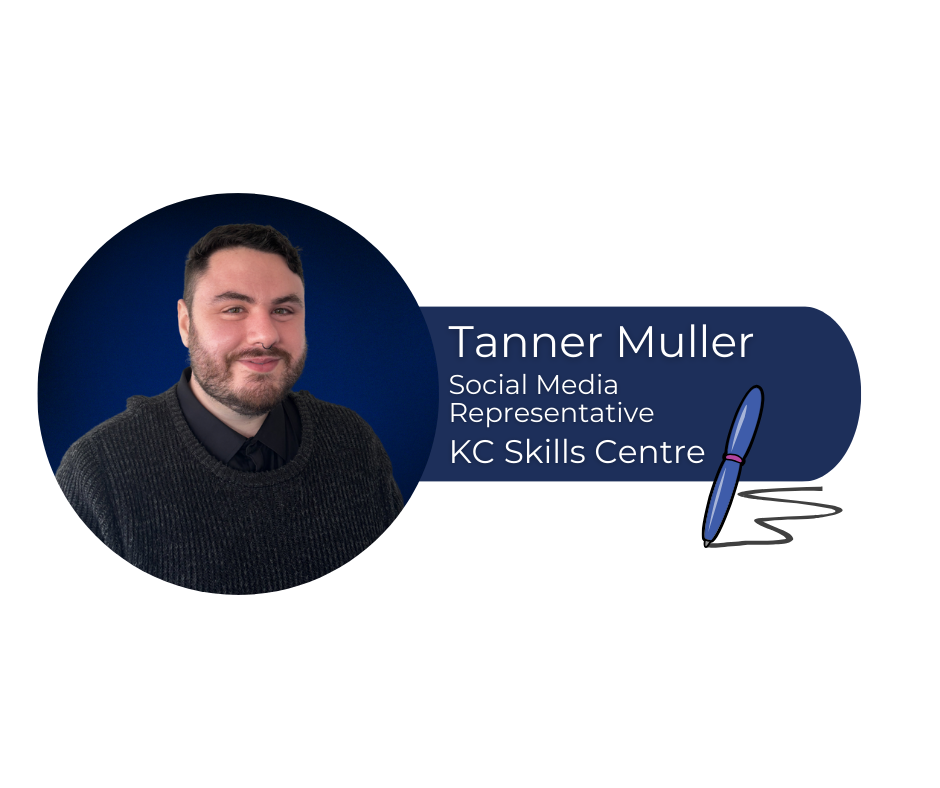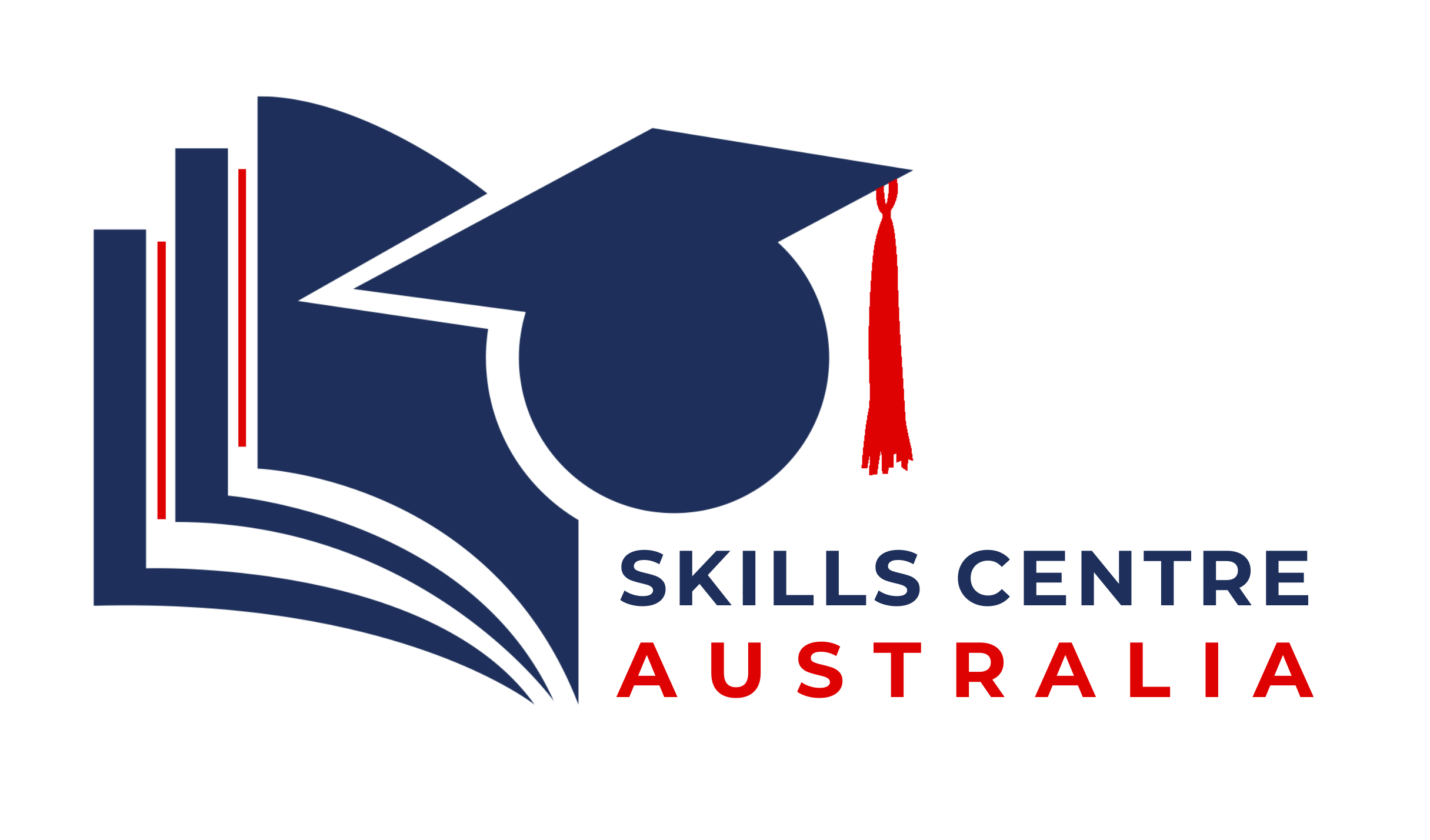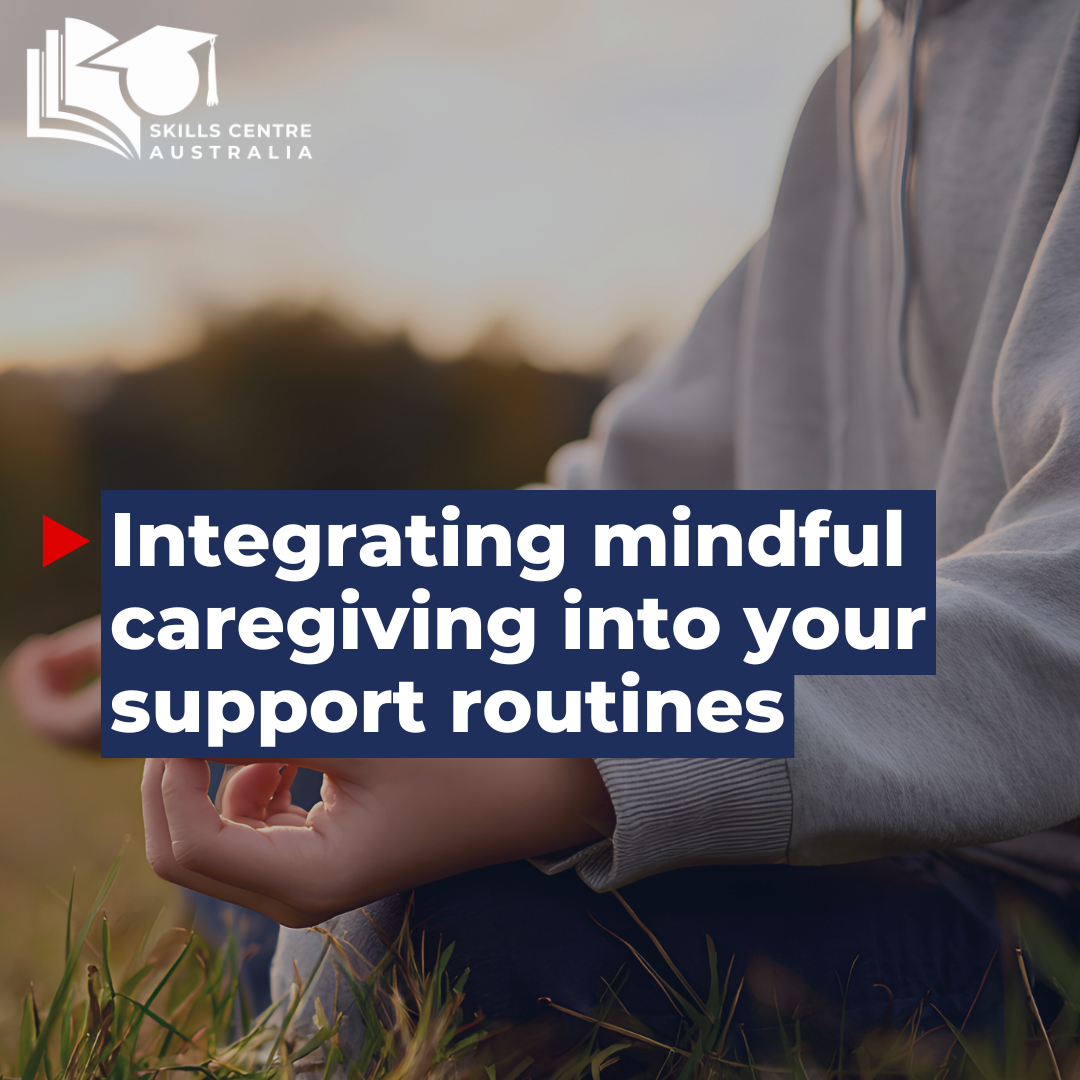Daily routines can often feel rushed, fragmented, or overwhelming for those receiving support. Tasks that might seem simple to others can become sources of stress and frustration, leaving clients feeling disconnected from the present moment. Over time, these accumulated pressures can affect mood, energy levels, and overall wellbeing, making even ordinary days difficult to navigate.
Mindful caregiving is one strategy that can transform everyday routines into meaningful opportunities of calm and connection. By gently integrating these techniques, support workers can help clients feel more emotionally grounded.
At Skills Centre Australia, we work closely with healthcare workers, allowing us to gain first-hand insights into the everyday challenges clients face. Drawing on this, we aim to provide practical, evidence-based strategies that can be seamlessly integrated into care routines.

Why mindfulness matters
Practices like breathing exercises, guided visualisations, and gratitude, have all been shown to improve emotional wellbeing. For clients facing illness, disability, or aged-related challenges, these techniques provide tangible benefits, helping them feel more grounded, resilient, and empowered.
For instance, a study published in Frontiers in Psychology (2021) found guided imagery can significantly reduce cortisol levels—the hormone associated with stress—by promoting relaxation responses in the body. Participants in this study reported a greater sense of control over daily routines, demonstrating that even brief, thoughtfully guided, sessions can have meaningful effects.
Beyond immediate stress relief, mindful caregiving can support better sleep, improve focus, and provide a greater sense of autonomy. Clients also benefit from a heightened ability to navigate daily tasks with calm and clarity.
Integrating mindfulness into care routines
Mindful caregiving is most effective when it is seamlessly woven into daily routines, rather than treated as a separate task or obligation. When these practices become part of the natural rhythm of daily life, they can be introduced effortlessly alongside regular activities. Specific mindful caregiving techniques include:
Guided visualisation
Inviting clients to imagine calming scenes, such as a beach or forest. Even short sessions can shift focus away from discomfort and promote a sense of ease.
Gratitude practices
Encouraging clients to reflect on some of the things they are grateful for, by getting them acknowledge some positive experiences.
Mindful micro-practices
Brief moments of awareness, such as noticing the warmth of water during handwashing, feeling the texture of clothing, or pausing to listen to ambient sounds, can help clients remain present and in the moment.
Practical examples include:
- Observing the rhythm of steps during a walk
- Engaging the senses while preparing meals together (colours, textures, aromas)
- Taking a short breathing or gratitude pause before bedtime
- Noticing sounds, sights, or sensations during an activity
- Focusing on the sensation of water, soap, or lotion during personal care
- Imagining a calming scene during a quiet moment

At its core, mindful caregiving is about creating an environment where clients feel seen, valued, and supported. Encouraging these moments allows clients to experience peace amid the demands of daily challenges.
Mindfulness is more than a stress-management tool, it opens pathways to comfort and resilience. When these practices are thoughtfully woven into care routines, clients can navigate life with a greater sense of ease.
These approaches align with our ethos at Skills Centre Australia, reflecting our commitment to support healthcare workers with practical guidance that enable them to provide compassionate, client-centred care.
To enrol in our quality, industry-recognised courses, contact our friendly team today by calling (08) 8340 6875, emailing info@kcskillscentre.com.au, or visiting our website www.kcskillscentre.com.au.


